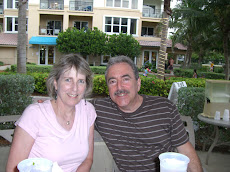
Living in the U.S. is a non-stop sensory stimuli experience. How you manage it can give you some neural highs. You can meditate and reach this with no stimuli, but you can go all out in the opposite direction and soak it in. While looking on the Internet for some ideas about Time and Buddhism, I listened to Pandora.
I tuned into my Rap station and heard 50 Cent, Kanye West and Ice Cube. I love the feel of Rap, and I am interested in what it says from the real to the not-so-real. Ice Cube is back with "Smoke Some Weed"and Eminem is still putting out some very good music worth listening to.
Okay, back to Time and Buddhism. To be sure I am giving proper credit: The material on this page has been collected from the recent book, "Beyond Dogma: The Challenge of the Modern World", (c) 1996 North Atlantic Books, translated by Alison Anderson and Marianne Dresser from talks given during His Holiness's visit to France end 1993.
Here.
"Q: What is the concept of time in Buddhism?
A: Regarding the Buddhist concept of time, our philosophy has adopted several positions. The Sautrantika school, also known as the "Holders of Discourse," affirms that all phenomena and events exist only in the present moment. For this school, past and future are nothing other than simple concepts, simple mental constructs. As for the Madhyamika-Prasangika school, the Consequence School of the Middle Way, it generally explains time in terms of relativity, as an abstract entity developed by the mind on the basis of an imputation, the continuity of an event or phenomenon. This philosophical view scribes, therefore, an abstract concept whose function is dependent on the continuum of phenomena. From this point on, to try to explain time as an autonomous entity, independent from an existing object, proves impossible. That time is a relative phenomenon and can claim no independent status is quite clear; I often give the example of external objects which can be easily conceived of in terms of the past or future, but of which the very present seems inconceivable. We can divide time into centuries, decades, years, days, hours, minutes, and seconds. But as the second is also divisible into multiple parts, milliseconds for example, we can easily lose our grasp of the notion of present time!
As for consciousness, it has neither past nor future and knows only present moments; it is the continuum of a present moment being trans . formed into another present moment, whereas with external objects the present disappears in favour of notions of past and future. But further pursuit of this logic will lead to absurdity, because to situate past and future we need a frame of reference which, in this case, is the present, and we have just lost its trace in fractions of milliseconds."
 The month, The Atlantic has some very interesting articles that relate to the brain and the way we think and make decisions. I really enjoyed the cover story on "Is Google Making Us Stupid?"
The month, The Atlantic has some very interesting articles that relate to the brain and the way we think and make decisions. I really enjoyed the cover story on "Is Google Making Us Stupid?"





